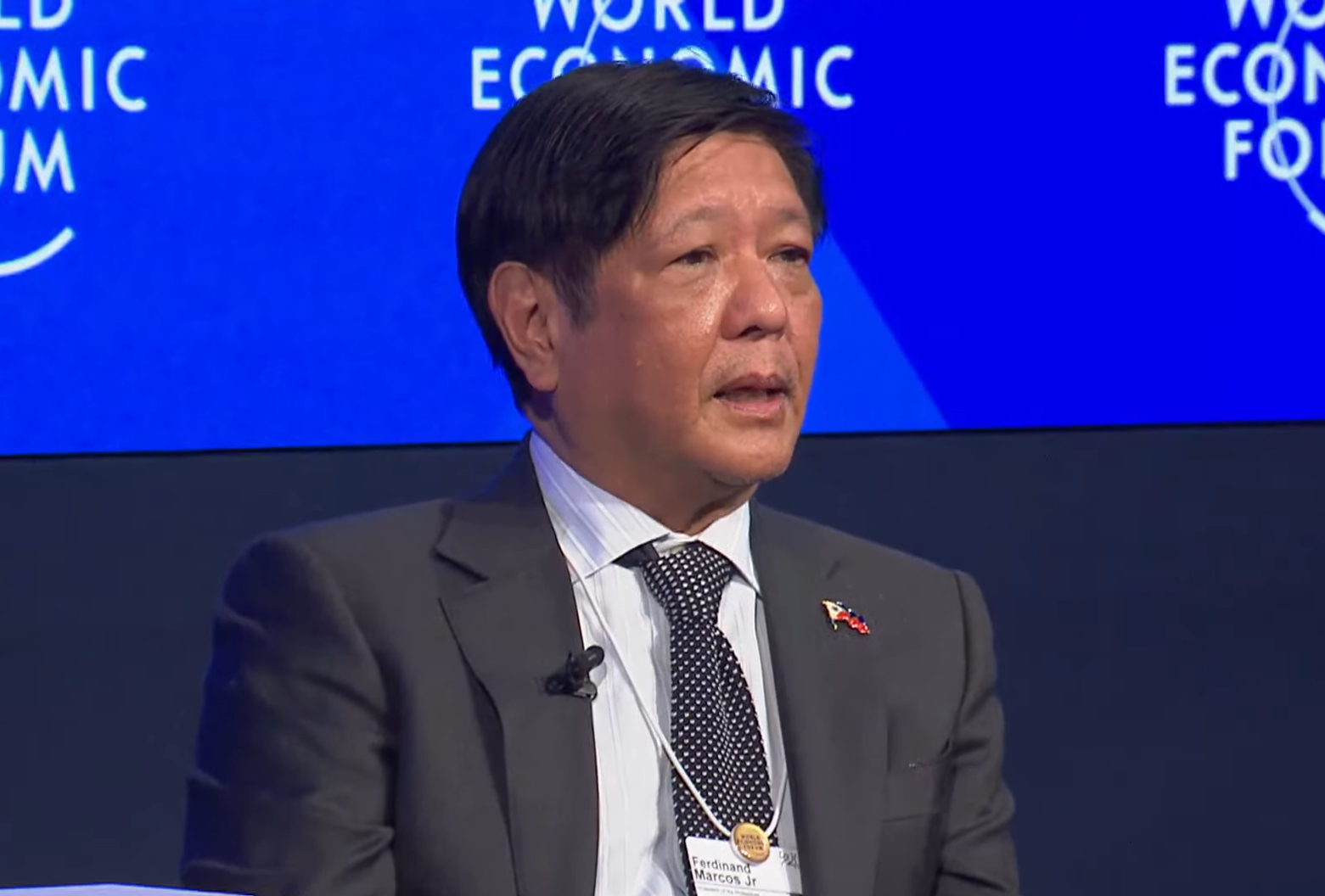Marcos says South China Sea 'keeps him up at night'

DAVOS, Switzerland - President Ferdinand Marcos Jr. said Wednesday that tension in the disputed South China Sea "keeps him up at night", but his country was committed to peace despite Beijing's territorial claims.
Speaking at the World Economic Forum in Davos, Switzerland, Marcos said his nation was watching as a "bystander" whenever tensions rise after Chinese or US warships cross the region.
"If something goes wrong here we are going to suffer," he said.
The situation "keeps you up at night, keeps you up in the day, keeps you up most of the time," said Marcos, who discussed the issue with Chinese President Xi Jinping during a visit to Beijing earlier this month.
"It's very dynamic, it is constantly in flux. So you have to pay attention to it to make sure that you are you are at least aware of the present situation so that you're able to respond."
China and the Philippines are at odds over the South China Sea, with Beijing claiming sovereignty over almost the entire area despite an international court ruling that its claims have no legal basis.
The Philippines, Vietnam, Malaysia and Brunei have overlapping claims to parts of the sea, and Manila ordered its military last month to boost its presence after a report that China had started reclaiming several unoccupied land features around the Spratly Islands.
"We have no conflicting claims with China. What we have is China making claims on our territory, and that ... is how we approach the problem," Marcos said.
But he said his country's policy was a "commitment to peace".
China and the Philippines vowed to resolve maritime disagreements through "friendly consultation" during Marcos' visit.
No way to avoid issue
According to Marcos, there was no way to avoid the South China Sea issue on his bilateral meeting with his counterpart Xi Jinping during his state visit in China early this year.
"There is no way to avoid it. We describe it and I suppose in diplomatic language as one part of our relationship but it is an important and unavoidable issue that we have to ventilate and we cannot also put it --- sweep it under the rug and pretend it’s not happening because there are effects not only in the diplomatic sense, not only in the security sense but even in the livelihood of our citizens," Marcos said.
He noted that he would not be doing his duty as Philippine president if he did not raise the matter with the Chinese leader.
"So it is unavoidable to speak about that and it --- I would not be doing my job if I did not bring up these issues with President Xi when I had the opportunity," Marcos said.
According to the President, the issue in the South China Sea should be dealt with by the region even if "there are players that come in from everywhere," including Europe and the United States.
"However, there is also a unanimity of the belief amongst the leaders in ASEAN that we must be committed to the idea that --- we call it ASEAN Centrality but it essentially boils down to the idea that the future of the region must be decided by the region. It cannot be decided by outside forces, by outside powers," he said.
"And I think that has been a good guide for the foreign policy and our dealings with the superpowers," Marcos added.
Marcos further said increased tensions in the region also affected the trade among countries.
"Because it’s not only the Philippines who has these issues with China, amongst the ASEAN members. And so that is the approach. I mean some people say --- even within the Philippines that we should do more. I said, what do you want to do? Go to war? Nobody wants to go. We don’t. China doesn’t. The United States doesn’t," said Marcos.
"Just having the tensions increased in the region already has an effect on trade, on all, the exchanges that we have within ASEAN, within the region, with China, with the United States and now with the aggrupation that are being formed, with Australia, with Japan, with South Korea," he added. — Agence France-Presse with Anna Felicia Bajo/RSJ, GMA Integrated News




